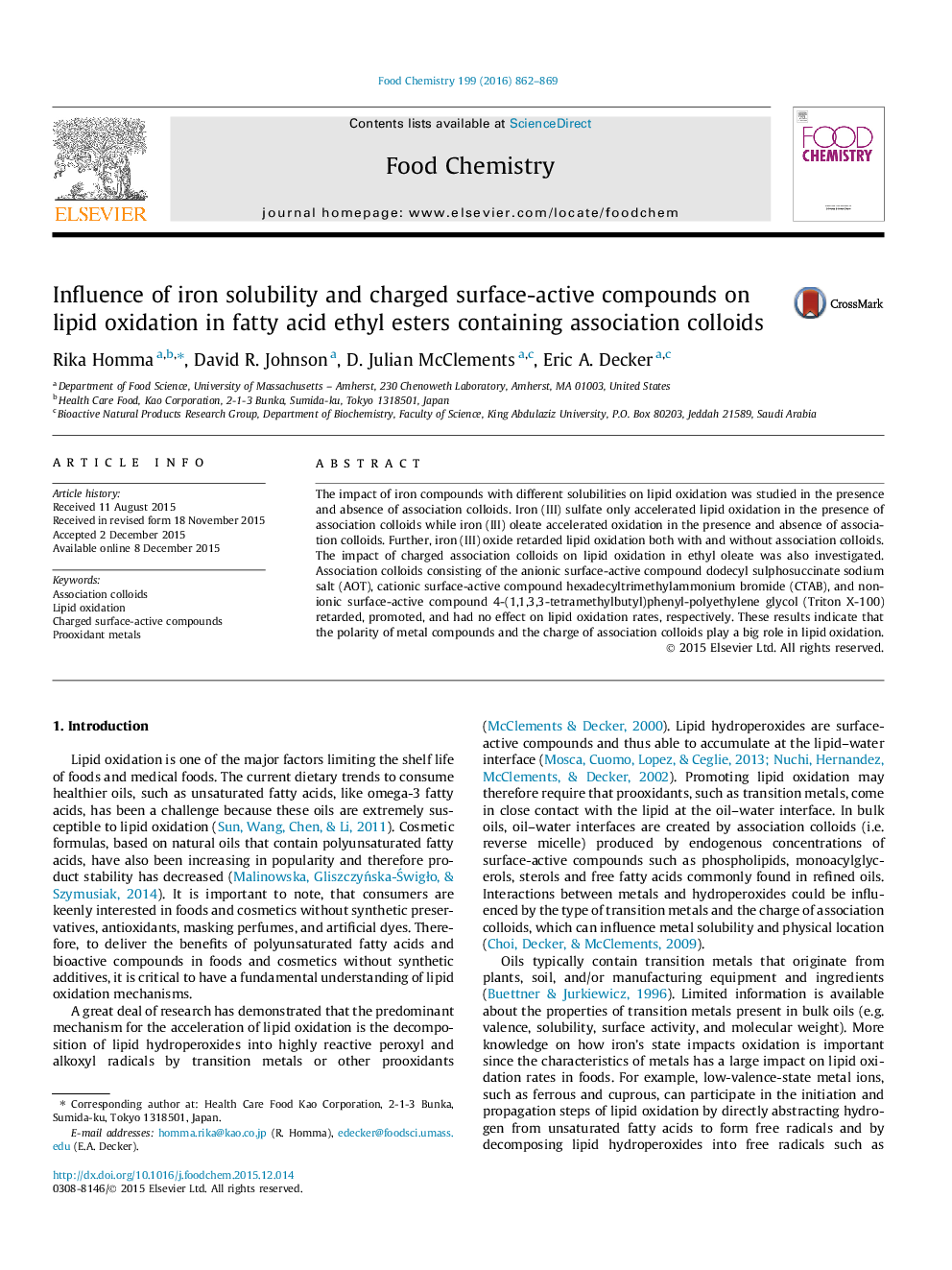| Article ID | Journal | Published Year | Pages | File Type |
|---|---|---|---|---|
| 7590178 | Food Chemistry | 2016 | 8 Pages |
Abstract
The impact of iron compounds with different solubilities on lipid oxidation was studied in the presence and absence of association colloids. Iron (III) sulfate only accelerated lipid oxidation in the presence of association colloids while iron (III) oleate accelerated oxidation in the presence and absence of association colloids. Further, iron (III) oxide retarded lipid oxidation both with and without association colloids. The impact of charged association colloids on lipid oxidation in ethyl oleate was also investigated. Association colloids consisting of the anionic surface-active compound dodecyl sulphosuccinate sodium salt (AOT), cationic surface-active compound hexadecyltrimethylammonium bromide (CTAB), and nonionic surface-active compound 4-(1,1,3,3-tetramethylbutyl)phenyl-polyethylene glycol (Triton X-100) retarded, promoted, and had no effect on lipid oxidation rates, respectively. These results indicate that the polarity of metal compounds and the charge of association colloids play a big role in lipid oxidation.
Keywords
Related Topics
Physical Sciences and Engineering
Chemistry
Analytical Chemistry
Authors
Rika Homma, David R. Johnson, D. Julian McClements, Eric A. Decker,
